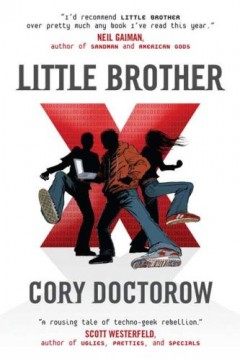
Oops, he did it again.
David Brin, whom some think of as a libertarian science fiction author, and who styles himself as such, but who really isn’t even close to being libertarian, and who seems to spend an inordinate amount of time these days attacking real libertarians like a jilted lover, was recently interviewed on Wired.com via the Geek’s Guide to the Galaxy podcast.
Brin has a controversial take on Star Wars. For example, he calls Yoda one of the most evil characters ever. Well, okay, Brin does have something of a point when it comes to Yoda. The Jedi as a whole are pretty much useless, meddling busybodies who are directly or indirectly responsible for the fundamental political problems in the Star Wars universe.
But Brin’s main criticism of Star Wars and George Lucas is premised largely on his fetish for state-democracy (my term for democratic institutions and processes ossified as formal mechanisms in the state apparatus). Lucas comes under fire for always protraying the republic as corrupt and nonfunctioning, which he does because he despises democracy and favors benign dictatorship.
But, of course, Brin has staked his entire nonfiction career on his Platonic ideal of radical transparency allowing perfect knowledge in a state-democracy. Only when this ideal is realized will freedom be protected and capitalism work properly, says Brin.












